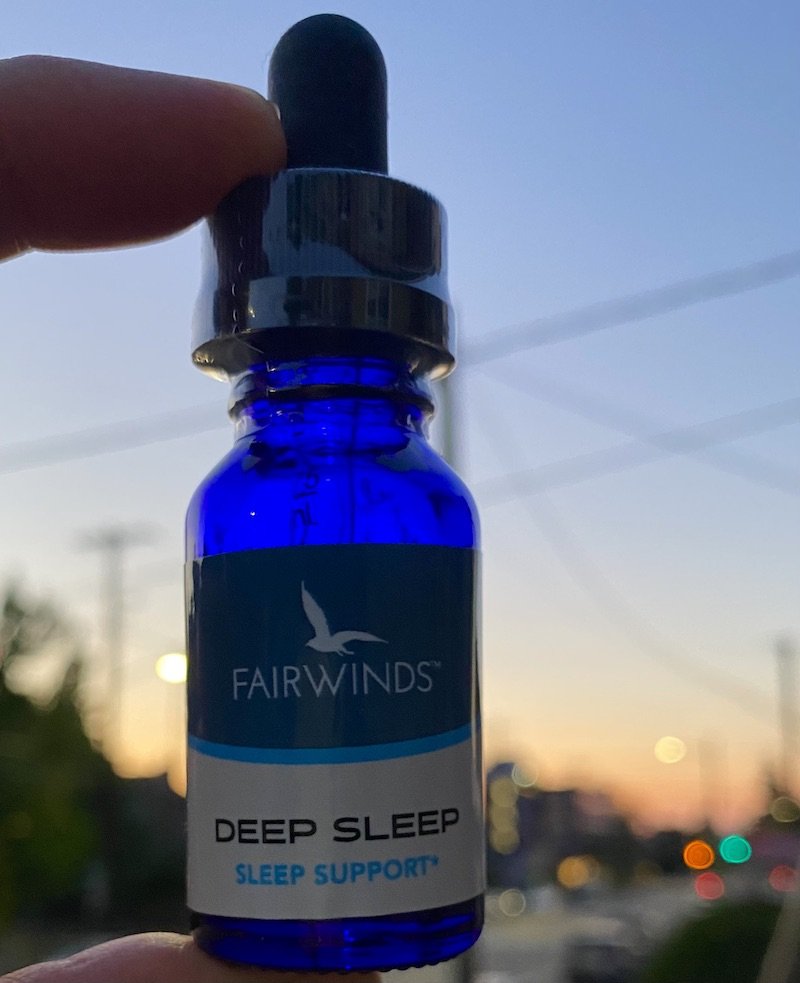Why Does THC Cause Sleepiness?
By Jeff Eckenrode
Cannabis is renowned for its medicinal and recreational benefits. And one of the most commonly sought effects of cannabis is sleepiness.
Sleep is an essential part of our lives. And after a good night's rest, we feel rested and ready to tackle the challenges of everyday life.
But why does THC (tetrahydrocannabinol), the main psychoactive compound in cannabis, cause that drowsy feeling? And how can it help you to get a better night's rest?
If you’ve asked yourself these questions before then you’ve come to the right place!
Here we will explore the causes of THC’s sedative effects and how cannabis can help you to get the rest that you’ve been dreaming of.
THC and the Endocannabinoid System
To understand why THC causes sleepiness, we first need to take a quick look at how THC interacts with our body.
The primary way THC exerts its effects is through the endocannabinoid system (ECS).
The ECS is a complex network of receptors found throughout the body, including the brain.
Two key receptors in the ECS, called CB1 and CB2 receptors, play a significant role in the way our body responds to cannabis.
CB1 receptors are primarily located in the brain and central nervous system. When THC interacts with these receptors, it can alter your mood, memory, appetite, and motor skills, among other things.
CB2 receptors are mainly found in peripheral tissues and are involved in the body’s immune function and inflammation.
When THC interacts with CB1 receptors in the brain, it has the potential to influence brain activity, which can lead to various effects, including sleepiness.
THC’s Effects on the Brain
One of the primary reasons THC can cause drowsiness is due to its impact on the brain's gamma-aminobutyric acid (GABA) and glutamate systems. GABA is a chemical messenger (or “neurotransmitter”) that promotes relaxation and calmness. In contrast, glutamate is an excitatory chemical messenger that keeps the brain alert and awake.
THC can enhance GABA activity while inhibiting glutamate.
The result? A calming, sedative effect.
This often makes a person feel more relaxed, less anxious, and, ultimately, more prone to sleep.
On top of that, THC also increases the levels of dopamine, a chemical messenger that plays a role in reward and pleasure.
The release of dopamine can result in a sense of euphoria or relaxation, which often leads people to feel more ready for rest.
While dopamine is often associated with wakefulness and alertness, its calming and mood-enhancing effects contribute to the sleep-inducing nature of THC.
THC and Sleep Stages
When we consume THC, it can also impact the different stages of sleep. Research suggests that THC may influence the rapid eye movement (REM) stage of the sleep cycle.
REM is the stage of sleep where dreaming typically occurs and is associated with cognitive processing and memory consolidation.
Some studies indicate that THC may reduce the time spent in REM sleep, which can contribute to a more restful, uninterrupted sleep for some people.
While this may be beneficial for individuals suffering from conditions like insomnia or PTSD (where REM sleep disruption is common), it can also leave some people feeling groggy upon waking, especially if they’ve consumed high doses of THC before bed.
Interestingly, THC can also help individuals spend more time in deep sleep (slow-wave sleep), which is the restorative stage where the body repairs tissues and strengthens the immune system.
By increasing deep sleep, THC may help people feel more refreshed when they wake up, although the effects can vary depending on the person.
THC Tolerance and Sleepiness
Another factor to consider is tolerance.
Regular cannabis users often develop a tolerance to THC, meaning they may need to consume higher doses to experience the same sedative effects.
While newcomers to cannabis might feel deeply sleepy after a small amount of THC, frequent users may notice that the sedative effect wears off over time.
However, even with a high tolerance, THC’s ability to promote relaxation and reduce anxiety can still help users wind down at the end of the day.
Dosing and THC
Not all THC doses will make you feel sleepy in the same way. Low to moderate doses of THC are more likely to cause mild relaxation and drowsiness, while larger doses might produce stronger sedative effects.
Some individuals may feel intense fatigue or sleepiness with even small doses, while others may only experience these effects with larger doses.
Other Factors Influencing Sleepiness
Beyond the direct effects of THC, other factors can influence how sleepy you feel after consuming cannabis. These include:
The Strain of Cannabis: Different strains of cannabis contain varying levels of THC, CBD (cannabidiol), and other cannabinoids that can affect the sedative qualities.
Method of Consumption: The way THC is consumed (smoking, vaping, edibles, tinctures) can affect how quickly it reaches the bloodstream and how long its effects last. Edibles, for example, take longer to kick in but can cause more intense and longer-lasting effects compared to smoking or vaping.
Your Personal Biochemistry: Everyone's body reacts differently to THC, influenced by factors like metabolism, body weight, tolerance, and even genetics. These differences mean that some people might feel deeply sleepy after consuming THC, while others may experience only mild relaxation or even alertness.
Want to Learn More About THC?
Check out our related posts:
Need help picking a product? Ask our friendly budtenders!
Whether you’re shopping in Seattle, Redmond, Everett, or online, we’re here to help you find what you need.


